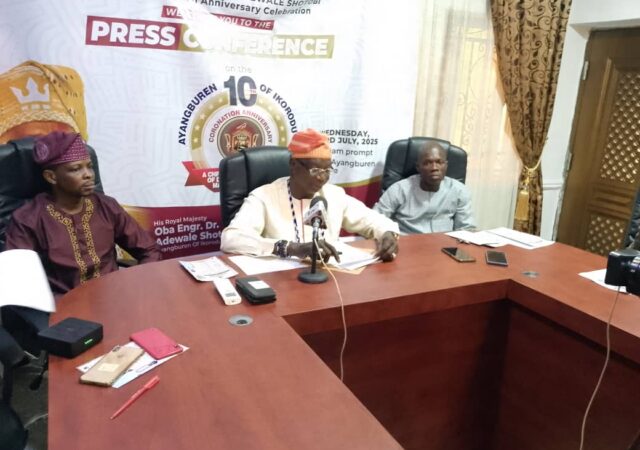A protracted dispute between Sterling Oil Exploration & Energy Production Company Limited (SEEPCO) and the Petroleum and Natural Gas Senior Staff Association of Nigeria (PENGASSAN) appears to have been resolved, following months of negotiations mediated by the Federal Government. The agreement was reached on June 4, 2025, after a series of dialogues facilitated by multiple agencies.
Sources familiar with the negotiations confirmed that the resolution followed multiple rounds of meetings dating back to early 2025. The dispute escalated in March when PENGASSAN staged a picketing of Sterling Oil’s offices in Lagos.
While the full details of the agreement remain undisclosed pending formal ratification by both parties, officials say the resolution emphasizes adherence to federal laws and industry regulations, as well as renewed commitments to constructive engagements going forward.
A source within Sterling Oil acknowledged the government’s role in mediating the resolution, describing it as a “positive step.”. Specific acknowledgements were extended to PENGASSAN leadership, the Ministry of Labour and Employment, the Ministry of Petroleum Resources, the Nigerian Upstream Petroleum Regulatory Commission (NUPRC), and NNPC Limited for their roles in facilitating the outcome.
Efforts to obtain official comments from PENGASSAN and NUPRC were unsuccessful, as key representatives were said to be unavailable at the time of reporting.
Sterling Oil, which has operated in Nigeria’s upstream oil and gas sector for years, has previously faced scrutiny over regulatory issues. However, the company has also maintained it engages consistently with unions and regulators to uphold workplace standards and industrial harmony. In the course of the recent dispute, the company reportedly addressed each concern raised by PENGASSAN, signaling a willingness to resolve matters internally through dialogue.
The resolution is expected to ease tensions within the oil and gas labour landscape, which is particularly sensitive given the strategic importance of the sector to Nigeria’s economy. Disputes in the energy industry often have wider implications, including potential disruptions in oil production and revenue losses for the country.
This dispute resolution also highlights broader concerns around regulatory compliance, capacity development, and industrial relations across the sector. Industry observers note that while some companies have taken steps to improve local job creation, workplace conditions, and capacity development, tensions between management and labour unions remain common.
The involvement of multiple government agencies in this particular instance reflects the significance of the dispute and the priority placed on maintaining industrial harmony.
Going forward, both Sterling Oil and PENGASSAN are expected to work within the framework of the agreement to prevent future conflicts and to support national objectives, including improved local content, skills development, and stable energy production.








whoah this blog is excellent i like studying your posts. Stay up the great paintings! You realize, many individuals are looking round for this info, you can aid them greatly.
fantástico este conteúdo. Gostei bastante. Aproveitem e vejam este site. informações, novidades e muito mais. Não deixem de acessar para se informar mais. Obrigado a todos e até mais. 🙂
excellent post, very informative. I wonder why the other experts of this sector do not notice this. You must continue your writing. I’m confident, you’ve a huge readers’ base already!
Hi my friend! I want to say that this post is amazing, nice written and include approximately all important infos. I?d like to see more posts like this.
Out of my observation, shopping for electronics online can for sure be expensive, nonetheless there are some tricks and tips that you can use to acquire the best discounts. There are always ways to uncover discount bargains that could make one to possess the best technology products at the lowest prices. Great blog post.
Useful information. Lucky me I found your website by chance, and I am surprised why this accident did not came about earlier! I bookmarked it.
6kz200
F*ckin’ awesome things here. I am very glad to see your post. Thanks a lot and i’m looking forward to contact you. Will you kindly drop me a mail?